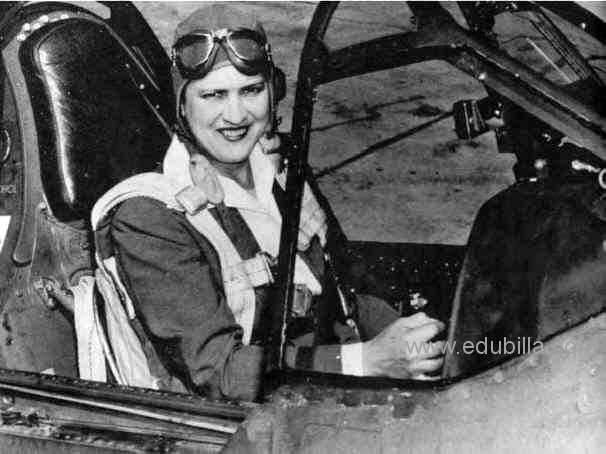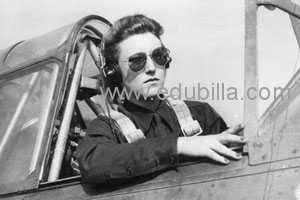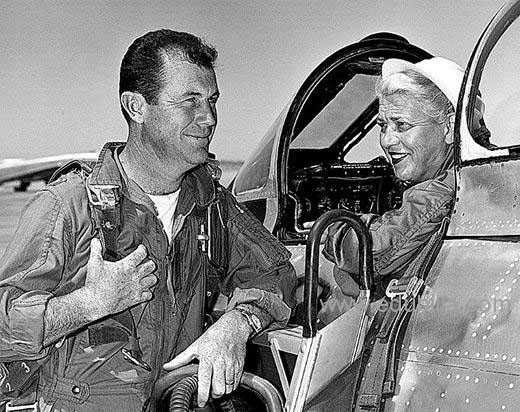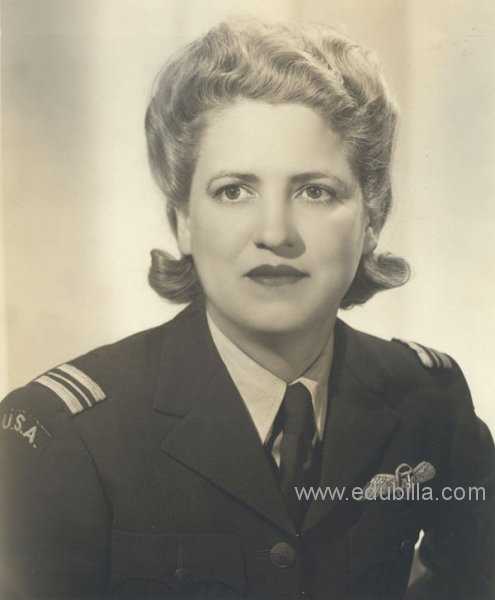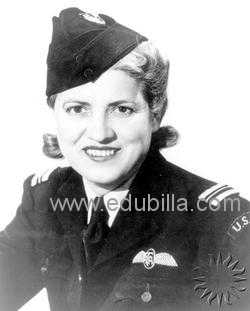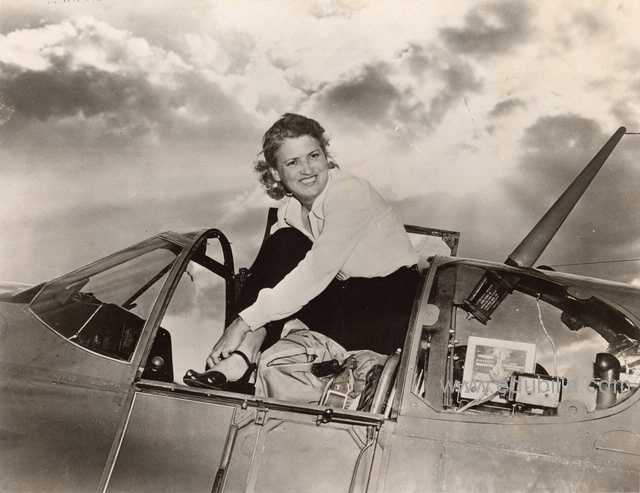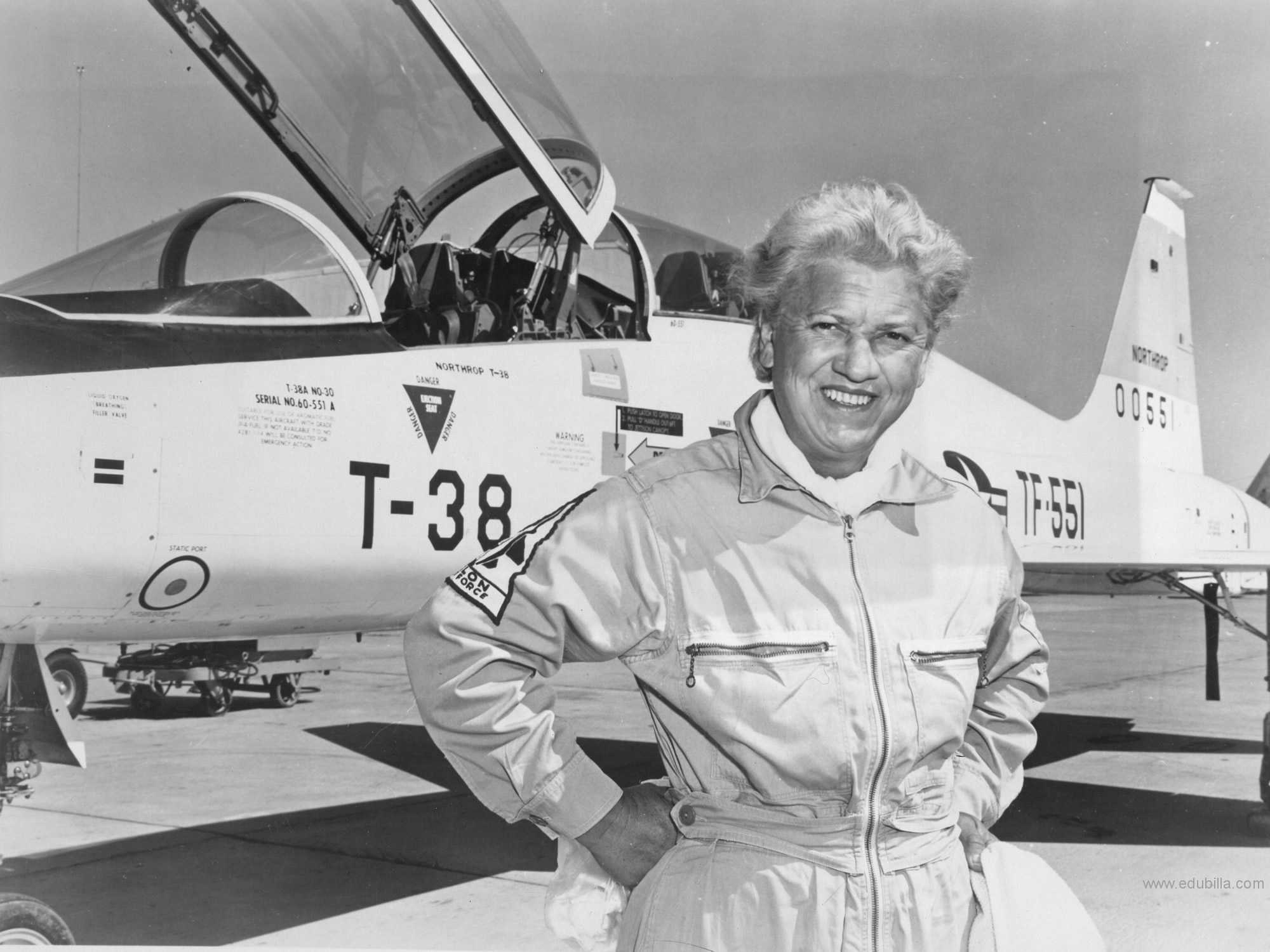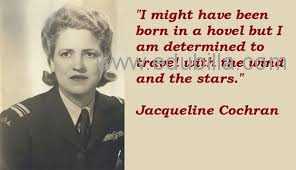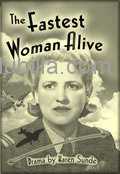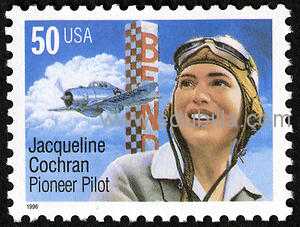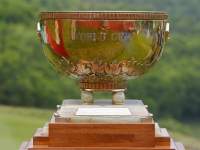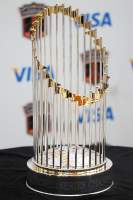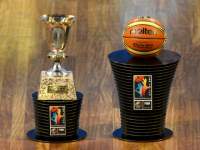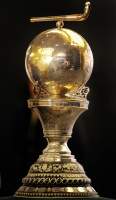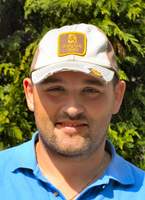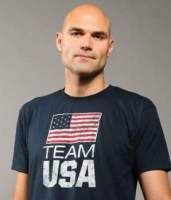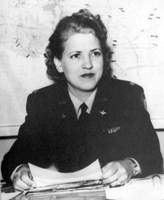
Jacqueline Cochran
About Jacqueline Cochran
Lt. Col. Jacqueline Cochran (May 11, 1906 – August 9, 1980) was a pioneer in the field of American aviation, considered to be one of the most gifted racing pilots of her generation. She was an important contributor to the formation of the wartime Women's Auxiliary Army Corps (WAAC) and Women Airforce Service Pilots (WASP).
Flying records:
Postwar, Cochran began flying the new jet aircraft, going on to set numerous records; most conspicuously, she became the first woman pilot to "go supersonic".
Encouraged by then-Major Chuck Yeager, with whom Cochran shared a lifelong friendship, on May 18, 1953, at Rogers Dry Lake, California, Cochran flew a Canadair F-86 Sabre jet borrowed from the Royal Canadian Air Force at an average speed of 652.337 mph. During the course of this run the Sabre went supersonic, and Cochran became the first woman to break the sound barrier.
Among her many record accomplishments, from August to October 1961, as a consultant to Northrop Corporation, Cochran set a series of speed, distance and altitude records while flying a Northrop T-38A-30-NO Talon supersonic trainer, serial number 60-0551. On the final day of the record series, she set two Fédération Aéronautique Internationale (FAI) world records, taking the T-38 to altitudes of 55,252.625 feet (16,841 meters) in horizontal flight and reaching a peak altitude of 56,072.835 feet (17,091 meters).
Breaking Records:
After the world war II, Jacqueline Cochran continued to follow her passion for air races and aviation competition. She set new transcontinental and international records. In 1953, she became the first woman to break the sound barrier. In the 1960s, Cochran was involved in an effort to test the ability of women to become astronauts in the “Mercury 13” program. In 1971, she was enshrined in the Aviation Hall of Fame in Dayton, Ohio, the first woman to be so honored. Cochran still holds more international speed, distance, and altitude records than any other pilot, male or female.
Jacqueline Cochran Achievements
From many countries around the world, Cochran received citations and awards. In 1949, the government of France recognized her contribution to the war and aviation awarding her in 1951 with the French Air Medal. She is the only woman to ever receive the Gold Medal from the Fédération Aéronautique Internationale. She would go on to be elected to that body's board of directors and director of Northwest Airlines in the U.S. At home, the Air Force awarded her the Distinguished Flying Cross and the Legion of Merit. In 1949, Cochran became the fourth U.S. recipient of the Türk Hava Kurumu's (Turkish Aeronautical Association) highest award, the Murassa Brövesi (Diamond Brevet).
An annual air show called the Jacqueline Cochran Air Show is named in her honor and takes place at the Jacqueline Cochran Regional Airport. Cochran also became the first woman to be honored with a permanent display of her achievements at the United States Air Force Academy. In the play The Fastest Woman Alive, written by Karen Sunde, Cochran's life is chronicled alongside her husband, Floyd, Amelia Earhart, and others.
Other honors include:
1965, induction into the International Aerospace Hall of Fame
1971, induction into the National Aviation Hall of Fame
1985, the International Astronomical Union assigned the name Cochran to a large (100 km in diameter) crater on planet Venus
1993, induction into the Motorsports Hall of Fame of America
1996, the United States Post Office honored Cochran with a 50¢ postage stamp, depicting her in front of a Bendix Trophy pylon with her P-35 in the background and the words: "Jacqueline Cochran Pioneer Pilot"
2006, induction into the Lancaster, California Aerospace Walk of Honor as its first woman inductee
